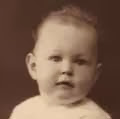Thoughts arising from The Harrowing...
From the second paragraph of The Harrowing by Rita De Heer it is very clear that this is a SiFi
story. So alien is the creature described that only those who like to push
ahead into the unknown are likely to read on. The physiology of the creature is
so unfamiliar that pushing ahead is all one can do in the hope of all becoming
clear in due course. One might hope for a picture but that would be too easy.
One just has to trust the narrative to give enough to keep it worth the read.
It certainly does.
One of the devices used to deepen the alien experience is
language itself – the very medium in which story exists. Apart from the newly
minted nouns to name the species, all of the words are familiar but the way
they are used heightens the sense of something perceived but not quite
knowable. This is particularly so in the use of hyphens to join ordinary words
to name things that require a stretch of the mind to grasp.
Yet, despite its alien nature, there are things about this
world that are familiar. The creatures procreate, though not like us. It is
this difference that makes them alien. Yet in our world corals procreate, also
not like us. Human procreation is not the only model in existence. Unlike
corals, the creatures in this story experience something like sexual attraction
but their gender relations seem to exist heedless of the whole point of gender
– until one recalls that Spartan soldiers, who procreated as readily as their
Athenian counterparts, did gender differently. The creatures parent their
young, and if the role of the genders seems to be a bit off the planet, one has
only to remember that it is, indeed, on another planet and that, on this one, seahorses do not conform with
what would otherwise seem to be a universal norm. We are being asked to see the
difference between a function of
material existence and the way it is
modelled in particular material circumstances, and perhaps to accept that
there is nothing that is alien. Almost nothing, that is.
At the outset there is a strong sense of doom hanging over
this world. Something has changed the environment and most of the waterbound
young are not surviving to maturity. The creature first encountered has not
been adequately nurtured and does not even understand the processes of its own
maturation. Well, nothing alien there if you’re a female in our world,
especially if you have to misfortune of being born into a society dominated by
men of fanatical religious habits. But I digress. The unfamiliarity of the
creatures with intrusive new elements in their environment causes them to
explain those intrusive elements in terms familiar to their own experience and
conceptual habits. The reader, however, is taken into the inner workings of the problem
and recognises immediately that the aliens in this world are human and that
they are acting with characteristic human disregard for what they do not understand
and appreciate the value of. One thinks of colonisation, destruction of human
and natural environments, genocide and so much more. Yes, there are aliens
after all, but who would have thought it would be... us?
The creatures lay plans to foil what they think is the
predator. They affirm that a heroic death in the service of their kind is a
worthy fate. They are completely wrong in their understanding of the situation
and there is a death but not one that can serve any purpose other than to
demonstrate their utter powerlessness. The creature first encountered returns
dispirited to the island, to serve, however futile it may be, the new
generation demanding its share of existence. No sense here of the lament heard
so often in our world that it would be condemning a new generation to a
horrific existence and therefore better not to let them be born. The dispirited
creature reflects on how it came to fend for itself - its parent having set out
to slay the harrower did not returned. It finds the cause of the problem and
finds the skeleton of one of its kind, crushed by the monstrously inexplicable
presence in its habitat. Knowing he faces the same fate he tries nevertheless
to play David to Goliath laying waste to his kind. As he is about to meet the
same fate as his predecessor, something of unimaginable magnitude and power
intervenes and he is not only spared, but the problem is vanquished.
The creature, being amphibious can only think of what
happened in terms of the environment in which it experienced it. So it was a
big fish, although it was so far beyond the creature’s expectation that it was
conscious of doubt about what it saw – what happened. The reader might conclude
that it was a force of nature that restored equilibrium to an unsustainable
situation. Either way the human mind is naming, as best it can, a function of
existence itself. In this world suggestions of Divine intervention name that
function without necessarily being any better or worse than explanations involving a big
fish or forces of nature.
There are no aliens except those who contemptuously assert
their will at the expense of others. All manifestations of existence are kin.
The patterns of being that are expressed in dissimilar “cultures” are what make
all “cultures” precious. The assertion that value is found only in what is like
“us” identifies the Anti-Being – the only real alien.

